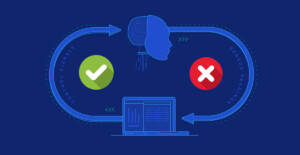6 Cybersecurity Lessons Learned in 2021
2021 is a year we won’t forget any time soon, for many reasons. One area significantly impacted this year has been cybersecurity.
While internet access has allowed many businesses to continue functioning during the COVID-19 pandemic, the unparalleled number of people accessing company data remotely set in motion many new challenges for cybersecurity professionals. With a history of working societal disorder to their advantage, cybercriminals continue to leverage the uncertainties created by the global pandemic in their attacks on businesses.
In early 2021, several high-profile businesses and government entities were victims of cyberattacks using tactics and vulnerabilities that were unnoticed by cybersecurity professionals. It is no easy task for anyone to make complete sense of how cybersecurity attacks have changed and what defensive strategies businesses should implement. If there is a silver lining, it is that the cybersecurity community has learned quite a bit, and we wanted to share some of the top security lessons learned in 2021.
2021 significantly accelerated existing trends. The activities performed by cybercriminals in 2021 were a continuation of previous years, but with enhanced techniques and advanced technology solutions. Cybercriminals are piggybacking off the attacks cybercriminals have been working to put an end to. In addition to enhanced techniques and advanced technology solutions, there has also been a continuing sophistication in their attacks.
Cybercriminals are focusing on specific industries and roles to acquire particular data and using clearer research to appeal to unsuspecting victims. Continuous research and observation to gather insight into their targets allow phishing emails to appear more legitimate, making them more likely to be opened and actions to be taken.
While the center of what the cybersecurity world continues to experience did not change drastically in 2021, some things surely did.
Lesson 1: Cyberattacks Are Not Going Away Any Time Soon
Many may have expected that there would be a decrease in cyberattacks at the beginning of each year, but that was definitely not the case in 2021. There was an increase in the volume of cyberattacks across every industry. With more users accessing critical systems and data from the comfort of their homes, attack surfaces increased significantly. IT security teams found themselves clambering to implement new security controls to mitigate threats due to the rising risk exposure.
Lesson 2: Phishing Attacks Are Becoming More Sophisticated
Many businesses and organizations have robust security policies and risk assessment strategies in place to manage cyber threats internally. However, if there is a lesson to be learned from 2021, it is that many businesses and organizations were not prepared to face the formidable cybersecurity challenges when employees were no longer connected to the workplace network.
Phishing remains one of the most popular threats businesses and organizations with remote employees face. Email messages that contain malicious links to websites are sent to steal sensitive credentials and information. Therefore, it is imperative that employees are on high alert and can recognize phishing activities in the form of malicious links and attachments. When employees encounter possible phishing emails, the employees should always be prompted to alert the cybersecurity team.
Lesson 3: Ransomware Attacks Are on the Rise
When we typically think of a ransomware attack, we often think about the form of malware that encrypts files. The malicious actor then demands a ransom from the unsuspecting victim to restore access to the data. However, over the years, ransomware attacks have evolved. Cybercriminals can now lock an entire device, and a message can be displayed across the screen requesting payment.
Cybercriminals continue to use extortion attacks on every industry. Key infrastructure servers are also being encrypted and targeted. Businesses and organizations must update cyber risk assessment strategies to counter these attacks.
Lesson 4: Cybersecurity Is Everyone’s Responsibility
Many businesses and organizations view cybersecurity as a measure to protect their operations from external threats and attacks. However, there is a misconception that cybersecurity is only the responsibility of the cybersecurity and IT experts. Robust cybersecurity measures would typically take the basic levels of an organization into account. However, businesses are still operating in unprecedented times, which calls for unprecedented measures.
2021 has taught us that cybersecurity is everyone’s responsibility. Therefore, it is important to train and empower employees on the best ways to defend themselves against cyber threats, thereby mitigating the risks. Malicious emails are being sent to your employees, and they are becoming easy targets. Therefore, business leaders must train employees about best practices, network security, data sharing, and more.
Lesson 5: There Is an Increase in a Zero Trust Cybersecurity Approach
The year 2021 has seen a great interest in zero-trust initiatives for cybersecurity. As businesses and organizations continue to adopt cloud storage and migrate some or all parts of their infrastructure to the cloud, critical assets will lie beyond the general security parameters. Due to a greater shift towards the cloud, business and organizational security parameters need to revolve around an individual’s identity and the device requesting access.
Zero-trust security models have gained increased attention in 2021. More businesses and organizations that hope to address new threats stimulated by an expanded remote workforce have turned to zero-trust.
Lesson 6: Businesses Need to Take a Universal Approach
Moving forward, it will be difficult for businesses and organizations to protect or defend their business operations and their critical data with no help. Cybercriminals are always searching for new victims and new ways to target those victims. Cybercriminals are also discovering new ways to cause the most damage and losses to unsuspecting businesses and organizations.
Therefore, more organizations learned that they need to take a more universal security approach involving cybersecurity experts, industry leaders, research groups, and even law enforcement officials to give themselves a better chance to win the continuous fight against cybercriminals.
2021 has been another wake-up call to businesses and organizations that they must adapt quickly to survive and prosper in today’s new business landscape. With our dependence on technology comes many vulnerabilities. The cybersecurity industry has learned many security lessons in 2021.
Organizations that act now will have less to worry about when new cyber threats arise. Organizations that have learned the security lessons will be better prepared to minimize the impact and likelihood of becoming a victim of a damaging cyberattack. tech42 LLC offers co-managed IT services for organizations throughout Scranton and Wilkes-Barre. Schedule your free initial consultation with us.







